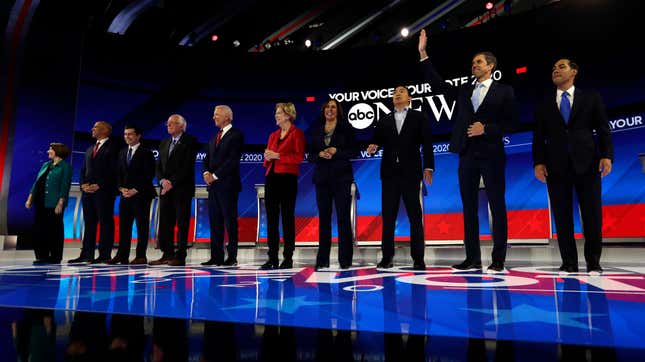

There were no questions about abortion or reproductive health at the third Democratic debate on Thursday night, which is usually what happens at presidential debates. The absence of any real discussion about abortion is so predictable at this point that there’s a hashtag (“#AskAboutAbortion”) and a familiar cycle of next-day takes that most writers on the beat could probably turn around in their sleep. The campaigns, too, have started to work these omissions into their messaging, with Kamala Harris and Beto O’Rourke both sharing nearly identical post-debate disappointment about it:
This is all fine I guess, but the candidates don’t actually need to be asked a question about abortion in order to talk about abortion. They can just talk about it. It’s a really common medical procedure.
They could have talked about abortion in the first major exchange of the debate, when George Stephanopoulos brought out the inevitable question how to pay for public programs like Medicare-for-All.
-

-

-

-

-

-

-

-

-

-

-

-

-

-

-

-

-

-

-

-

-

-

-

-

-

-

-

-

-

-

-

-

-

-

-

-

-

-

-

-








































